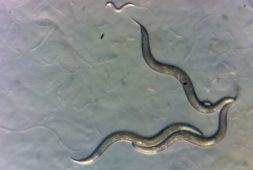Eating A Diet High In Processed Foods And Added Sugars Increases Risk Of Dangerous Snoring

A study published on February 21 in ERJ Open Research suggests that adopting a plant-based diet rich in vegetables, fruits, whole grains, and nuts could potentially lower the risk of obstructive sleep apnea (OSA).
Conversely, the study found that consuming an unhealthy plant-based diet, characterized by high consumption of ultra-processed foods, sugary beverages, and foods high in sugar and salt, was associated with a heightened risk of OSA.
The authors of the study indicate that risk factors for obstructive sleep apnea may arise from both genetic predispositions and dietary behaviors. While previous research has predominantly focused on the effects of calorie restriction and weight loss on OSA, there remains a significant gap in understanding how overall dietary patterns influence the risk of developing this condition, says senior research fellow at Flinders University in Adelaide, Australia, Yohannes Melaku, PhD.
He says, “Our study highlights the significance of a plant-based diet in potentially reducing the risk of obstructive sleep apnea.”
Meanwhile, Devon A. Dobrosielski, PhD, associate professor of exercise science and kinesiology at Towson University in Maryland who has published research on the effectiveness of diet and exercise for reducing obstructive sleep apnea in older adults, says, “I think the most important finding of this study was that people who were adherent to a healthy plant-based diet were least likely to exhibit characteristics indicative of OSA — independent of their sex, age, race, calories consumed, smoking, physical activity, alcohol, and sleep duration.” Notably, Dr. Dobrosielski was not involved in this research.
39 Million Adults in America Have Obstructive Sleep Apnea
Obstructive sleep apnea affects an estimated 39 million individuals in the United States, characterized by repeated blockages of the upper airway during sleep, leading to decreased or halted breathing.
Various factors, including obesity, enlarged tonsils, or hormonal fluctuations, can contribute to the narrowing of the airway, thereby heightening the risk of developing this condition. Additionally, men are 2 to 3 times more likely to experience sleep apnea compared to women.
Common nighttime symptoms of obstructive sleep apnea include snoring, intermittent breathing patterns, and gasping for air while asleep. Daytime manifestations may include excessive drowsiness, dry mouth, headaches, and sexual dysfunction or decreased libido. Furthermore, individuals with OSA face an elevated risk of developing high blood pressure, stroke, heart disease, and type 2 diabetes.
A Healthy Diet Consists of Whole Grains, Vegetables, Fruits, and Nuts
To investigate the relationship between diet and obstructive sleep apnea (OSA), researchers analyzed data from over 14,000 participants enrolled in the U.S. National Health and Nutrition Examination Survey.
Participants provided dietary information by detailing their food intake over the previous 24 hours. Based on this data, individuals were categorized into one of three dietary groups:
- A healthy plant-based diet, comprising whole grains, fruits, vegetables, nuts, legumes, tea, and coffee.
- A diet emphasizing animal-derived foods, such as dairy, eggs, fish, seafood, meat, and animal fat.
- An unhealthy plant-based diet featuring a high consumption of highly processed foods, refined grains, potatoes, sugar-sweetened beverages, sweets, desserts, and salty foods.
Researchers utilized a questionnaire to assess the presence of OSA, considering factors such as snoring, fatigue, blood pressure, body mass index (BMI), age, gender, and waist circumference.
Consuming a Nutritious Diet Decreased OSA Risk by Nearly 20 Percent
After analyzing the relationships between OSA symptoms, risk factors, and dietary habits, and adjusting for variables such as age, race, income, smoking, physical activity, heart disease, cancer, and diabetes, notable findings emerged:
- Individuals whose diets were rich in healthy plant-based foods showed a 19 percent lower likelihood of experiencing OSA symptoms compared to those consuming diets with minimal plant-based components. Moreover, individuals adhering to predominantly vegetarian diets also exhibited a reduced risk.
- On the other hand, individuals consuming diets abundant in unhealthy plant-based foods faced a 22 percent higher risk of OSA compared to those consuming minimal quantities of such foods.
- Interestingly, dietary patterns appeared to exert a more pronounced impact on the OSA risk among women. Women adhering to a healthy plant-based diet demonstrated a lower risk of OSA relative to men. However, women were also at a heightened risk compared to men if they followed an unhealthy plant-based diet.
“These results highlight the importance of the quality of our diet in managing the risk of OSA,” says Dr. Melaku.
He says, that while the study’s primary focus did not include investigating the reasons behind the potential influence of diet, the researcher notes that prior studies have indicated a connection between inflammation, high fat mass, and obstructive sleep apnea (OSA).
A Nutritious Diet Could Alleviate Inflammation and Aid Weight Management
“In our previous work, we demonstrated that a healthy diet, particularly an anti-inflammatory one, decreases OSA risk through reducing inflammation and body mass index. We hypothesize that consuming a plant-based diet, especially a healthy one, may impact these factors, thereby affecting OSA risk,” says Dr. Melaku.
Dr. Dobrosielski suggests that the notion of a healthy plant-based diet reducing the risk of obstructive sleep apnea (OSA) is logical, as these foods have been associated with reduced oxidative stress and inflammation markers. Such improvements could enhance the function of neuromuscular control mechanisms responsible for keeping the upper airway open, thereby reducing the likelihood of experiencing apneas during sleep.
Sex-Specific Variances Emphasize the Requirement for Personalized Interventions
The authors emphasize that the greater impact of diet quality on the risk of obstructive sleep apnea (OSA) for women compared to men highlights the necessity for tailored dietary interventions. While the current study did not delve into the potential explanations for this gender difference, Dr. Melaku speculates that variances in physiology and hormonal levels could be contributing factors.
“More empirical data is required to ascertain the exact cause of these differences,” he adds.
Meanwhile, Dr. Dobrosielski that these disparities could be because of the differences in how men and women store fat. “Men tend to store more fat in the neck, trunk, and abdomen, which release pro-inflammatory cytokines associated with OSA and place a large mechanical load on the upper airway,” he says.
According to Dr. Dobrosielski, this suggests that obstructive sleep apnea (OSA) might manifest more severely in men, and the variance in diet quality may not be sufficient to mitigate this challenge.
Guidelines From Experts for Individuals with Obstructive Sleep Apnea or Those at RISK
Dr. Dobrosielski advises his overweight or obese patients, regardless of their risk of obstructive sleep apnea (OSA), to prioritize the quality of their diet over quantity.
He says, “In addition to telling them to avoid highly processed carbohydrates, foods with added sugar, and high salt, I also tell them to stay away from trans fats. Other fats are bad only in the context of high sugary foods.”
He advises his patients to steer clear of highly processed carbohydrates, foods containing added sugar, and those high in salt. Additionally, he emphasizes the importance of avoiding trans fats. He notes that while other fats may not be detrimental on their own, they should consumed with caution, particularly in combination with high-sugar foods.



